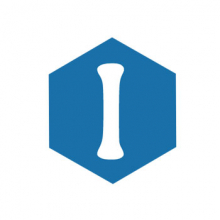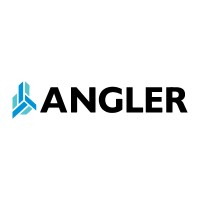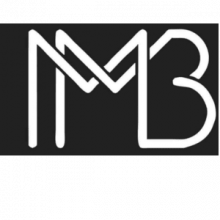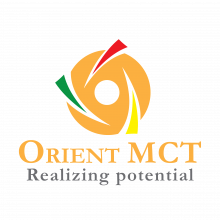
There are 16 Companies in Abu Dhabi
that provide Angular Development Services!
The UAE capital, Abu Dhabi is also growing its potential in the tech and IT industries. Alongside Dubai, the city has seen investments of over $250M in 2019 that were directed to startup incubators and accelerators
Discover Top IT Companies in Abu Dhabi specialized in Angular and other related services. Find the best IT service providers for your projects.
Angular (formerly AngularJS) is a popular open-source web application framework maintained by Google and a community of developers. It's used for building dynamic, single-page web applications (SPAs) and web-based applications in general. Angular provides a structured and organized way to create complex web applications by extending HTML with additional features and enabling the development of interactive, responsive, and maintainable front-end web interfaces.
Handpicked companies • No obligation to hire • 100% risk-free
Featured Companies in Abu Dhabi
This month, the following Angular Development companies managed to provide an outstanding service and support. It's worth taking a look.

TechGropse Pvt. Ltd. Verified Company
Abu Dhabi, United Arab Emirates Head office in: United States
Techgropse is a leading Mobile App and Web Development Company, dedicated to turning innovative ideas into remarkable digital solutions. 500+ Clients

Abu Dhabi, United Arab Emirates Head office in: India
Our Main Focus Is Creating Metaverse & AI Projects Seamlessly Combining Artificial Intelligence And Virtual Reality. Also, We Have Expert IT Services.

Abu Dhabi, United Arab Emirates Head office in: India
Inventcolabs is a leading-edge IT services company, offering platform to hire dedicated developers at different hiring models.
Explore Top Angular Development Companies in Abu Dhabi

iDigitalise - Digital Marketing Agency Verified Company
Abu Dhabi, United Arab Emirates Head office in: United States
Digital Marketing and Technology Firm
Specializing in bespoke solutions, we excel in custom software development, mobile apps, enterprise solutions, and cloud services.

Equdai Software Solutions L.L.C Verified Company
Abu Dhabi, United Arab Emirates Head office in: United Arab Emirates
We are Equdai - Shaping Visions Into Digital Masterpieces, Based on Abu Dhabi, UAE
Services:
Digital Transformation Company

IPIX Technologies Verified Company
Abu Dhabi, United Arab Emirates Head office in: India
Web Development & WordPress Development Company
Accounting software consultancy involves expert guidance in selecting implementing optimizing accounting and financial management systems tailored to.
Sparkleap. is a top SEO agency in Dubai for businesses, which provides full digital marketing services.
Services:
OrientMCT is among the well-established companies that provide leading Technology, Training, and Data Management Services in Abu Dhabi.
Ensource is a leading website development company with a team of customer centric developers & designers.
intoHOST, established in 2009, has a mission to deliver superior web hosting and domain registration services.

Bluelinks Agency Verified Company
Abu Dhabi, United Arab Emirates Head office in: Pakistan
Bluelinks specializes in SEO, SMM, Web development, Branding and digital strategies to drive success for small and mid size businesses.
Services:
We Mirror Your Expectations.

ANGLER Technologies Verified Company
Abu Dhabi, United Arab Emirates Head office in: United States
ANGLER’s reactjs web application development is a fast, robust and flexible framework for user interface development.
Services:
Filter Angular Development Companies in Cities near Abu Dhabi
Dive deeper and find the company you need close to you or, from a specific city you prefer. Some of the best companies come from smaller places
Find more Angular Development companies around the world
TechBehemoths is the world's most advanced and user-friendly platform to match IT Companies with real clients without hustle.
The IT Industry in Abu Dhabi: Overview
The UAE capital, Abu Dhabi is also growing its potential in the tech and IT industries. Alongside Dubai, the city has seen investments of over $250M in 2019 that were directed to startup incubators and accelerators. Increasing its business capacity, the city has also attracted foreign investments in the IT sector of over $125M in the past 5 years. Google, Microsoft, HP, and Apple are only a few of the tech giants present in the Emirate capital.
Regarding accelerators, incubators, and startup programs Abu Dhabi has registered more than 10 programs ready to support the tech businesses and IT sector. Among the most notable names, there are Mohammed bin Rashid Innovations, Sheraa, Ma’an Social Incubator, or, ADGM Reglab.
IT professionals in UAE are choosing Dubai over Abu Dhabi, and following the trend, the city should attract more young professionals with facilities and lower living costs. On the other hand, the average salary in Abu Dhabi for IT professionals is competitive. According to Salary Expert, the average salary for such professionals is estimated to be at 248K AED, or $67K/Year. Compared to Dubai, the salaries are ⅓ lower, but at the same time among the highest in the region.
Overall, Abu Dhabi has high potential to become one of the region’s leaders in tech and IT, and together with Dubai, boost the entire digital transformation of the country.
Based on joint efforts of companies and TechBehemoths, there are more than 98 IT companies from Abu Dhabi that gained advanced digital exposure and have higher chances to get more leads
What is Angular and what are its benefits for your projects?
Angular (formerly AngularJS) is a popular open-source web application framework maintained by Google and a community of developers. It's used for building dynamic, single-page web applications (SPAs) and web-based applications in general. Angular provides a structured and organized way to create complex web applications by extending HTML with additional features and enabling the development of interactive, responsive, and maintainable front-end web interfaces. Here are some key aspects and concepts of Angular:
-
Component-Based Architecture
-
Templates
-
Directives
-
Dependency Injection
-
Services
-
Routing
-
Observable and RxJS
-
Modules
-
Testing
-
Cross-Platform
Angular's structured approach, strong tooling, and vibrant ecosystem of libraries and extensions make it a powerful framework for building modern web applications. It is particularly well-suited for large and complex projects where maintainability and scalability are crucial.
Companies may choose Angular over other front-end frameworks for their projects for a variety of reasons, depending on their specific needs and priorities.
-
Google Backing: Angular is developed and maintained by Google. This association often gives companies confidence in its long-term support, stability, and continuous improvement. Google's involvement is seen as a sign of reliability and commitment to the framework.
-
Mature and Established: Angular has been around for a while and has a strong track record of being used successfully in large-scale enterprise projects. It has a well-defined architecture and best practices, which can be beneficial for maintaining and scaling applications over time.
-
TypeScript Support: Angular is built with TypeScript, a statically-typed superset of JavaScript. TypeScript provides better tooling, code maintainability, and catches errors at compile time, which can reduce bugs and enhance code quality, making it attractive to companies that prioritize robust code.
-
Full-Featured Framework: Angular provides a comprehensive set of tools, libraries, and features out of the box, including routing, form handling, HTTP client, and more. This can save development time and effort compared to integrating multiple third-party libraries in other frameworks.
-
Two-Way Data Binding: Angular offers powerful two-way data binding, which allows for automatic synchronization between the data model and the view. This feature can make it easier to develop interactive and responsive user interfaces.
-
Large and Active Community: Angular has a large and active community of developers and a wealth of resources, including documentation, tutorials, and third-party libraries. This can be beneficial for finding solutions to common problems and getting support when needed.
-
Enterprise-Ready: Angular provides features like dependency injection, modularity through modules, and a strong emphasis on testability. These characteristics are well-suited for building robust and maintainable enterprise-level applications.
-
Strict Coding Standards: Angular enforces a set of coding standards and best practices, which can lead to more consistent and readable code. This can be important for companies with multiple developers working on the same codebase.
-
Cross-Platform Development: Angular can be used for building both web and mobile applications. Companies looking to develop applications for multiple platforms may choose Angular for its ability to share code between web and mobile apps using technologies like NativeScript or Ionic.
-
Integration with Backend Technologies: Angular can easily integrate with various backend technologies and APIs. This makes it suitable for projects where the front end needs to communicate with different types of server-side applications.
-
Security Features: Angular provides built-in security mechanisms to help prevent common web vulnerabilities like Cross-Site Scripting (XSS) and Cross-Site Request Forgery (CSRF). This can be crucial for projects with high security requirements.
-
Ecosystem and Tooling: Angular has a rich ecosystem of tools, extensions, and IDE support, including Angular CLI for project setup and management. This can streamline development workflows and improve productivity.
Ultimately, the choice of Angular or any other framework depends on the specific project requirements, the development team's expertise, and the company's long-term goals. Companies evaluate various factors to determine which framework aligns best with their needs, resources, and priorities.







